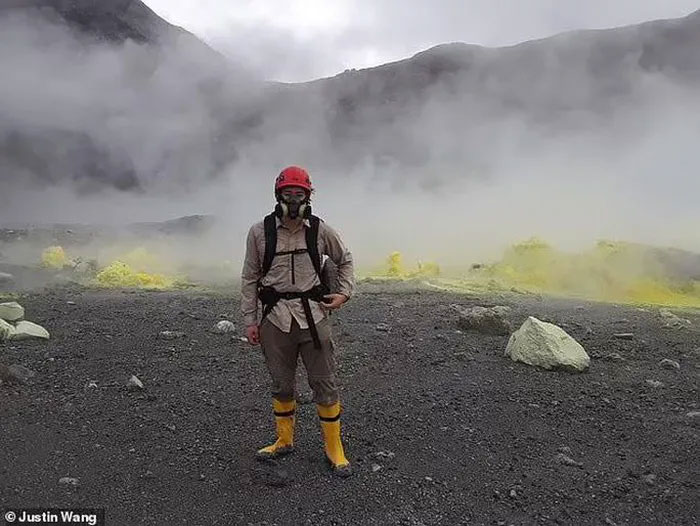Creatures that thrive in the boiling, acidic, and toxic metal-laden waters near Poás Volcano in Costa Rica could lead the way for future missions searching for extraterrestrial life.
We often search for planets that possess conditions suitable for the common forms of life found on Earth—like ourselves and the familiar species around us. However, new research from the University of Colorado Boulder suggests that we may be limiting our search criteria.

A scientist wearing a gas mask conducting field research at the “Death Lake” volcano, where a colony of bizarre organisms is thriving – (Photo: Justin Wang).
According to Daily Mail, scientists have discovered thriving colonies of bacteria living in… boiling, highly acidic water filled with toxic metals at the volcano lake next to Poás Volcano in Costa Rica. These bizarre organisms suggest that concepts like “habitable zones” and “life-sustaining environments” are relative.
Researcher Justin Wang, the lead author, stated that the extremophiles they found have developed a range of adaptive traits. Not only do they survive in this deadly environment, but they also “feed” in an unimaginable way: they generate energy by using sulfur, iron, and arsenic!
Such toxic lake environments have been identified on Mars, dating back to when the planet was still in its infancy. Therefore, the search for Martian fossils may not be a far-fetched idea. One location that possesses these conditions is Jezero Crater, where NASA’s resilient Mars rover is currently exploring.
The study also revealed that these extremophiles cleverly “evacuate” to the lake’s edges whenever an eruption occurs, and they have developed a range of genes that help them adapt to conditions that most life forms on Earth cannot endure.
This discovery will broaden the search for extraterrestrial life in future missions: it seems that the limits of the “Goldilocks zone” of star systems—defined by temperatures suitable for Earth-like organisms—are a misconception. Focusing solely on chemical signatures of conditions favorable to common life forms is also a significant oversight.
The research was recently published in the scientific journal Frontiers in Astronomy and Space Sciences.


















































